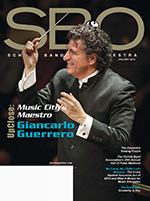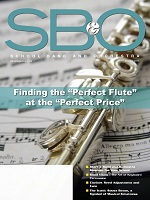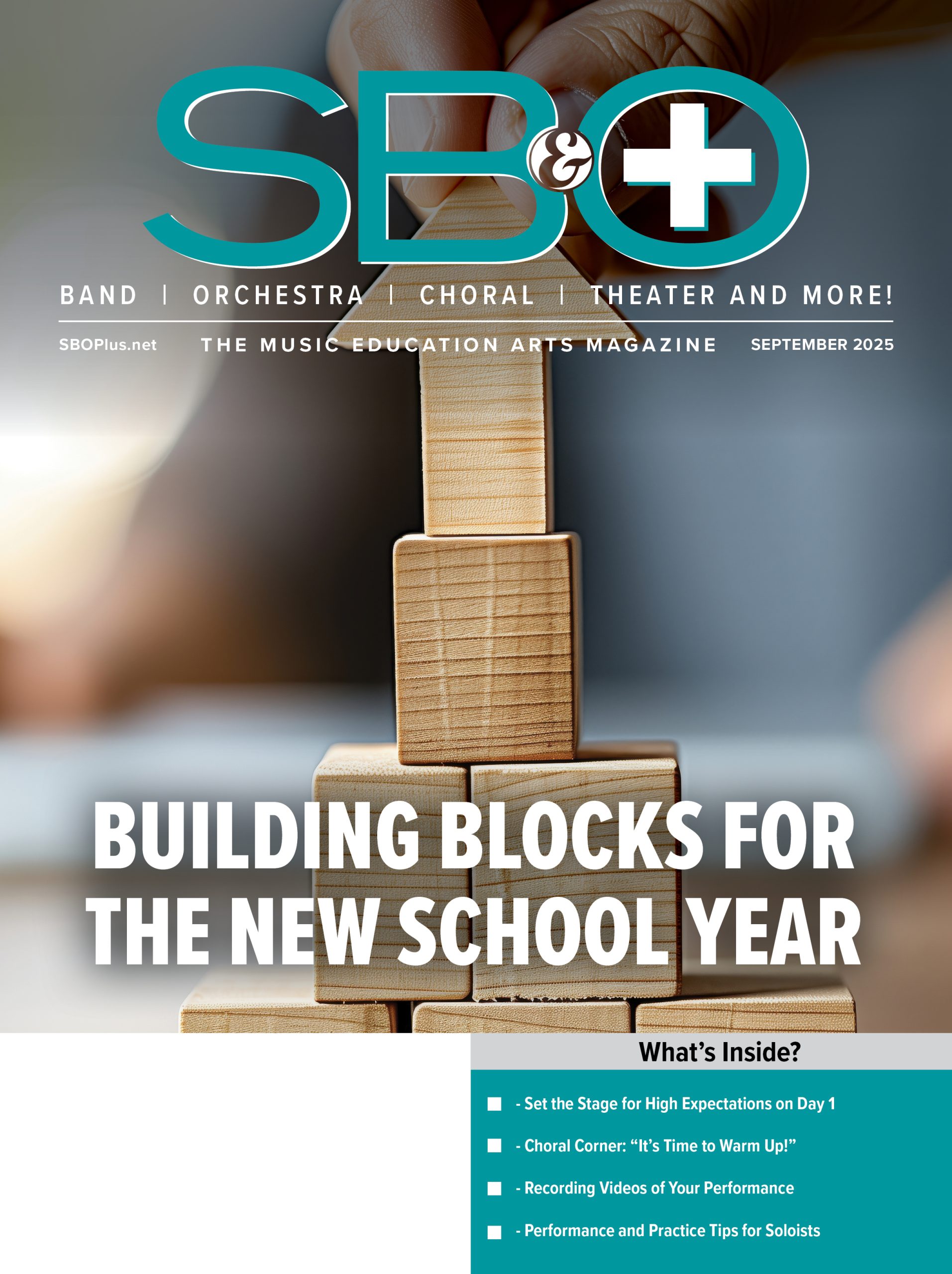K.M. Griesinger earned her Bachelor’s and Master’s degrees in music education from the University of Akron, where she is adjunct faculty. She has been teaching strings in Ohio schools for four years and privately for nearly ten.
I played the piano quite well as a teen. I remember learning simple tunes at first and repetitious pattern-based exercises that I easily memorized, progressing gradually to Beethoven and Rachmaninoff. But I can also still remember my dear teacher playing through each new piece for me, then coaching and pointing as I stumbled painfully through a first attempt: “No, no, that is A-flat• no, a triad• right here.” I simply watched and tried to make my hands create something that sounded like the melody I had just heard. I don’t know if I ever would have known that treble and bass clef were different had I not studied flute and cello later. But then I got to college. As a music major, I spent my first two semesters panic-stricken, trying desperately to keep up in theory classes and quietly despairing in the back of the cello section in orchestra.
I look back now and wonder: Did she ever know? Could my very first music teacher have overlooked the fact that I couldn’t read all those years? And shouldn’t that have been a priority in our lessons? The unfortunate truth is that many students are able to play or sing, but are essentially musically illiterate. We live in a culture that even promotes it; how about those infomercials with enthusiastic “experts” claiming you too can learn to play the piano by ear? Of course, to professional music educators, this method would be comparable to learning to speak the English language by listening to books on tape. Yet many music teachers will admit the problem is common, especially in large school ensembles where students can watch or ask each other and slip by unnoticed. As both a private teacher and an orchestra director, I have made the mistake of missing the warning signs. In recent years, I have begun to recognize potential non-readers and find they generally fall into one of three categories.
1. Students who cannot read music at all.
How can you tell? One obvious red flag is the need or request to hear a new piece before playing it. Students will be unable to identify notes on staff when asked. Watch the students’ eyes as they play; they typically look at the instrument or focus on one spot on the page of music. These students also tend to make learned mistakes repeatedly, even after errors are pointed out several times. What can you do? If they are playing or singing well, these students often have the advantage of excellent pitch, rhythm, and phrasing. They may remember where and when to execute dynamics, if told by the teacher. These are sound musical qualities that can enhance future reading skills, but students need to understand that they are currently limited in the difficulty of music they can learn. Explain to the students that they are missing out on musical opportunities by relying on “always needing to hear it first.” The challenge is possible resistance to change; the suggestion of returning to simpler music to learn actual reading may cause some students to give up and quit. To avoid this, strategic reading exercises and frequent assessment must be integrated into lessons from the very start.
2. Students who can read some music, but who sight-read poorly.
These students do self-correct occasionally, and can identify note names and rhythms in written exercises. However, they stare blankly at a new piece of music and struggle to play it correctly on sight. I have observed that these students may have note-reading skills, rhythm reading ability, or playing technique, but one capacity is weaker than the others. One way to identify which skill is lacking is to assess each element separately. This can be done in a lesson or classroom with specific exercises. For instance, ask the student to clap various rhythm patterns at sight. This can be supplemented with verbal counting of subdivisions for more complicated rhythms. Note reading skill can also be isolated with written tests, but the problem often lies in the translation of the note name to the instrument. A line of whole notes on a staff allows the student to focus on single pitches as a playing/reading assessment. Similarly, flashcards are an excellent tool in the private lesson. Students who are advancing quickly without equally strong technique in each of these areas will inevitably reach a point of frustration in their musical development. Many adjudicated events and youth orchestra auditions require sight-reading, where fine players may fall short. Explain to the reluctant student how remedial work on specific techniques can be empowering and emphasize how vital each element is to the musical experience as a whole.
3. Students who can read most notes and rhythms, but memorize quickly.
This is the easiest, but unfortunately, most rare student to identify. He/she is able to play complete pieces of music both from memory and at sight. These students are often proud of this ability and it is not one to discourage. Two disadvantages to consider, however, are: 1) the student has such strong memory skills that musical elements memorized incorrectly are ingrained and can be difficult to correct, and 2) the student sometimes alternates between reading and remembering as they perform. This can be a detrimental practice, especially under the pressure of a public performance, since it can be difficult to locate the correct place in the music after looking away. Musicians have related stories of recitals where they played from partial memory and returned to the music, only to make the distressing discovery that a page turn had not been made! Also, as students advance, concentration and immersion into the character and flow of the music is increasingly important. The constant oscillation between mind and music might disrupt the emotional experience and even contribute to performance stress and anxiety. Encourage memorizers to practice from the music initially, and then decide to rehearse with or without it not both.
Strategies for Reinforcing Music Literacy
Implementing regular reading “check-ups” from the very beginning is a reliable way of avoiding the music illiteracy dilemma. This may be easier for studio teachers with a variety of theory workbooks and the resource of time at their disposal, but it should be a priority in the classroom too, even if students only meet two or three times a week. Repetition is key! Never assume that one lesson on the “lines and spaces” means all students understand. Find creative ways to review basic note and rhythm recognition with different approaches. Very young children could be given a page of new music and told to color all the Es green, Bs, blue, and so on. Older students can arrange specific notes on a blank stave to spell words, or write out scales and key signatures. In a large class, administer individual playing or counting tests as the other students work on a written assignment. Go around the room and have each student read the note names or clap the rhythm of each successive measure of a new piece of music before reading it.
As one of our National Standards, reading music should be high on the list of important learning objectives for every music teacher. Consider taking time at the start of this school year to devise a plan of action for reinforcing the reading skills of your students.

























